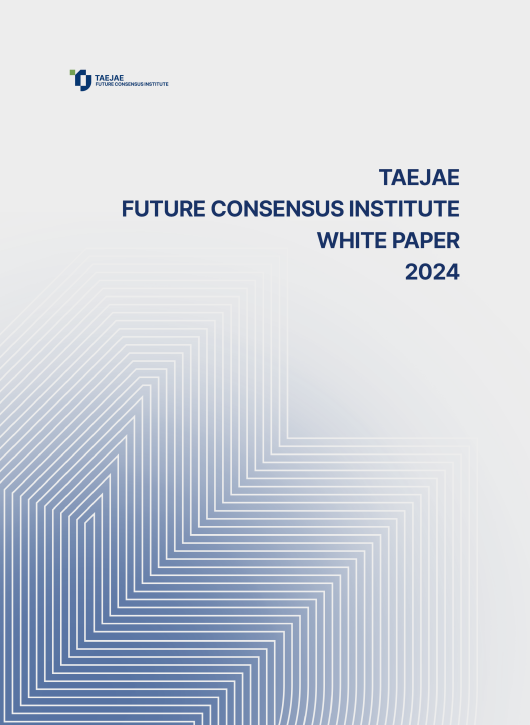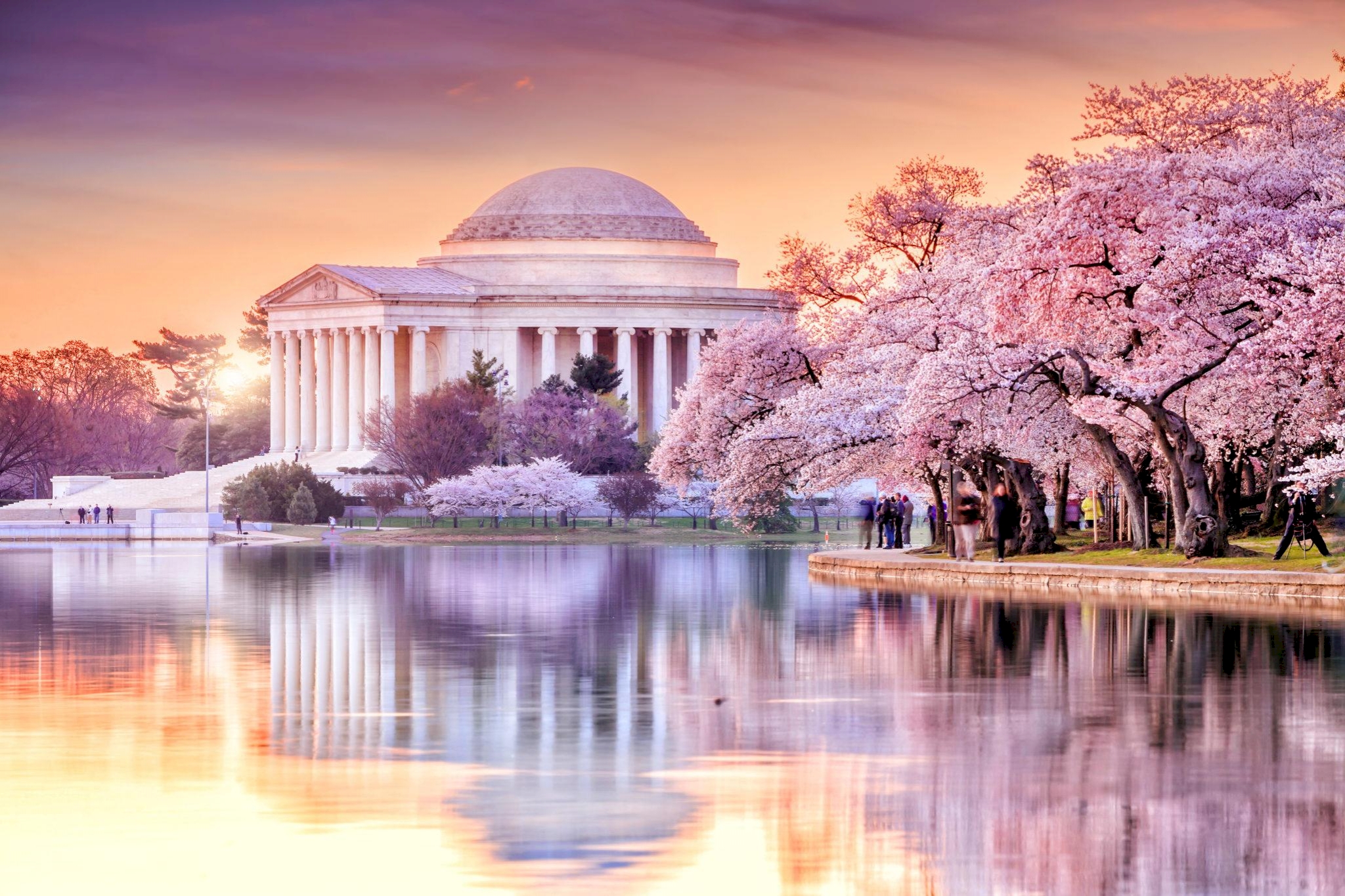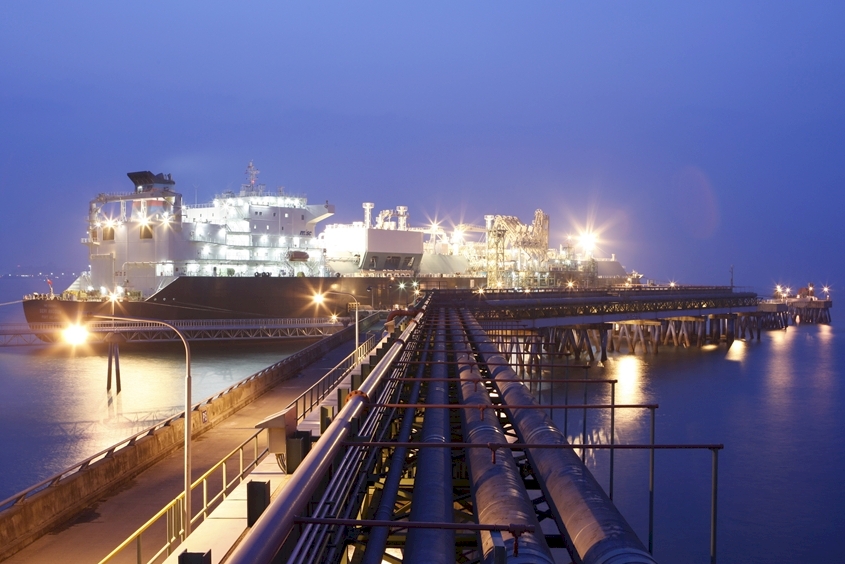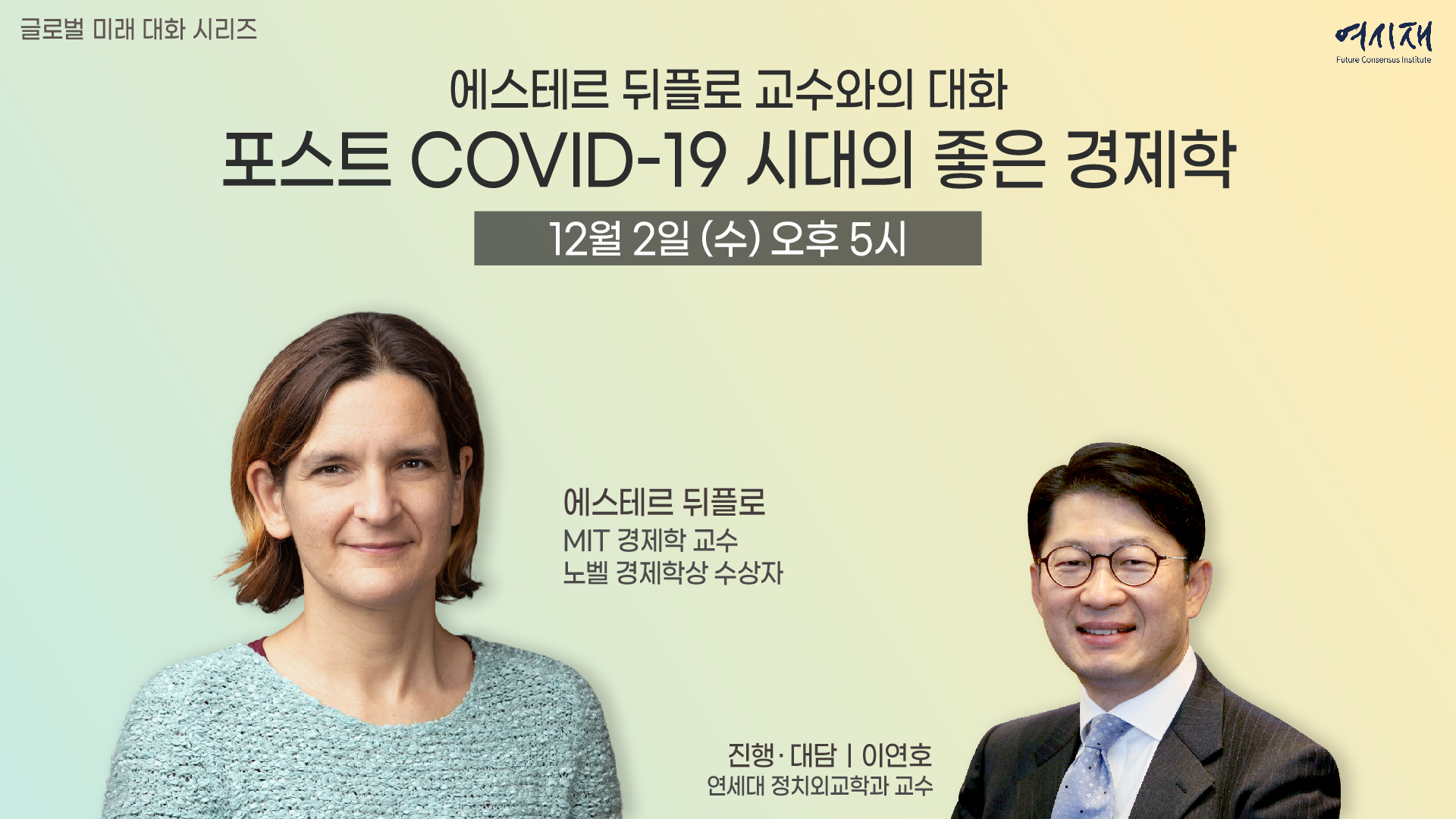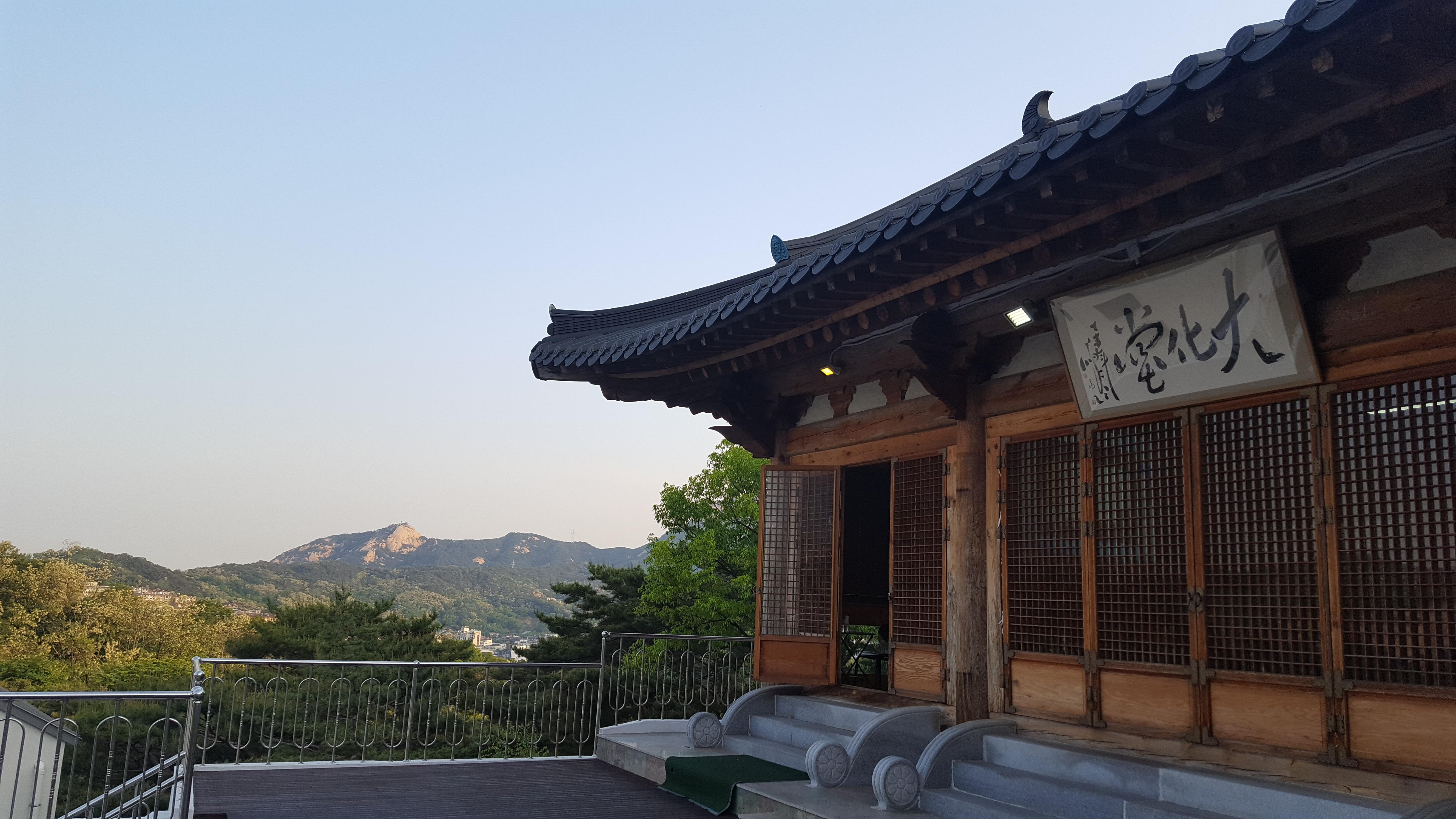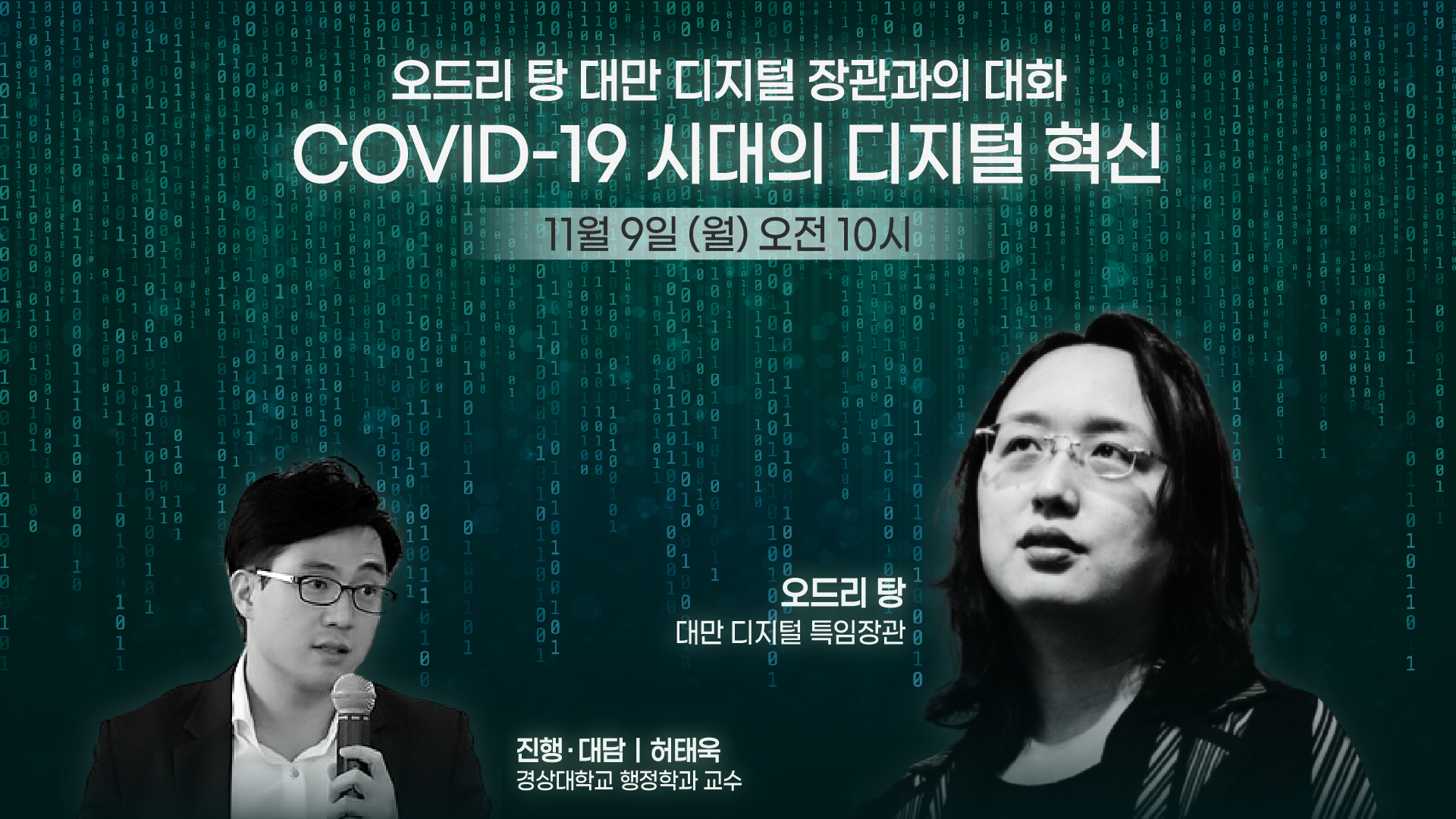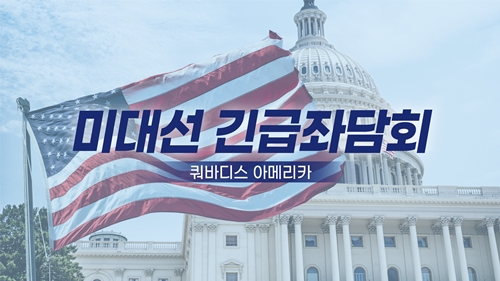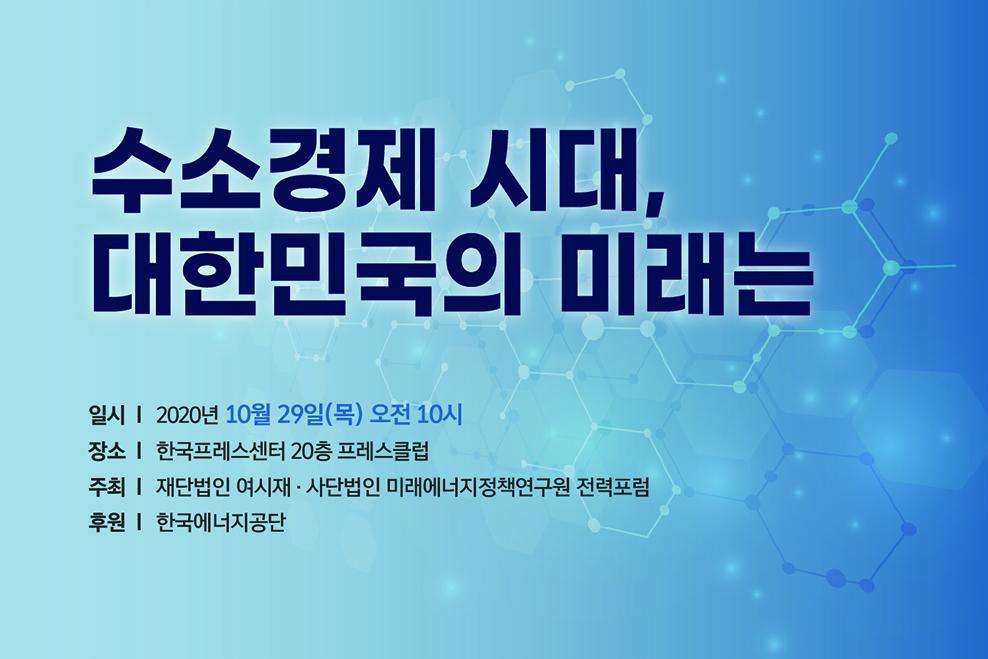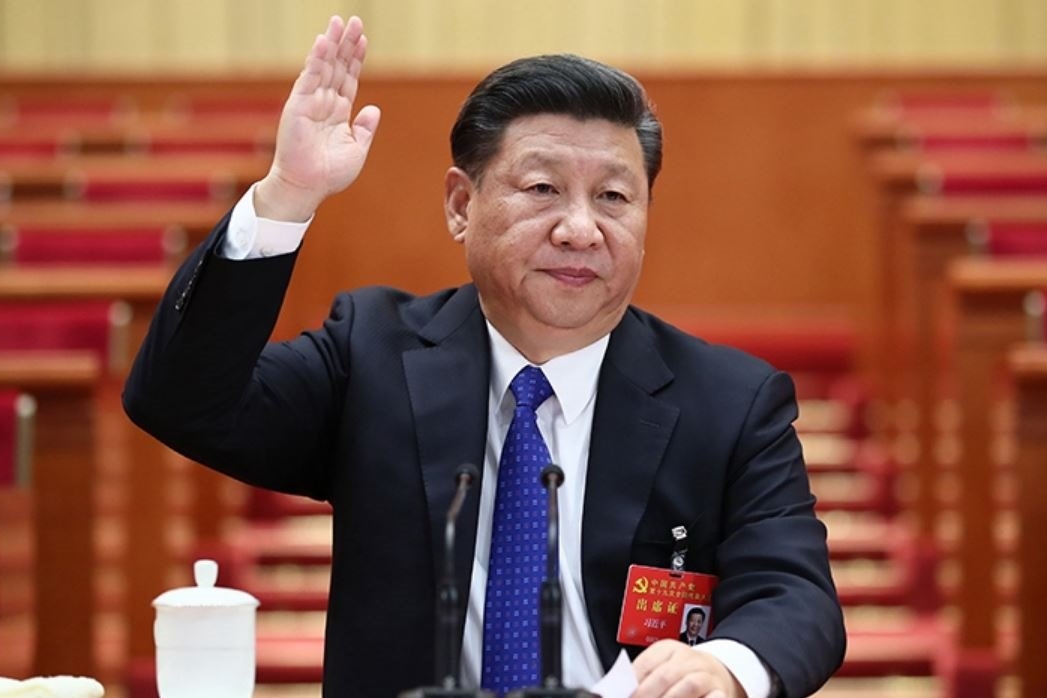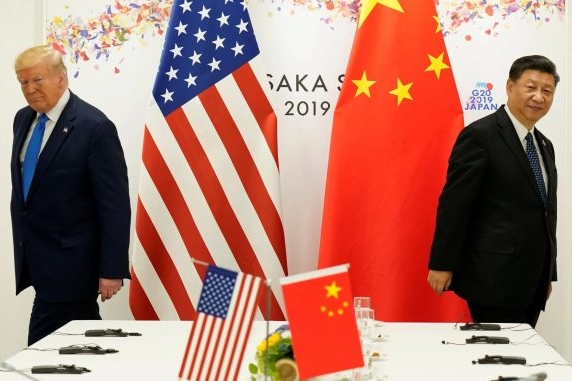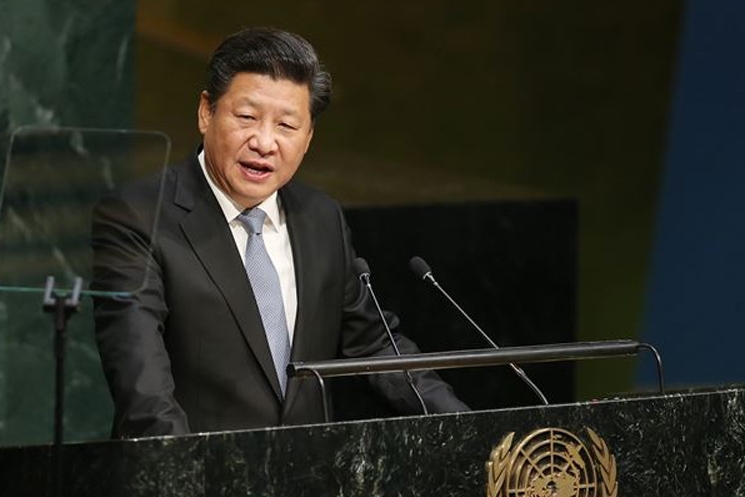Please join Yeosijae as we build a brighter future for Korea. Create your account to participate various events organized by Yeosijae.
- Insights
- |
- Global Order and Cooperation
[How Japan view China ①] The US-China confrontation - Where will hegemony reside next?
|
One of the biggest concerns of modern Japan is ‘China.’ There have been numerous seminars, symposiums, and private learning sessions on the topics of “The Change of China” and “The Future of US-China Relations.” Korea, as well, pays attention to the issue of how Japanese academia and elite groups view China. Consequently, Yeosijae decided to introduce four papers from Japan’s Society of Security and Diplomatic Policy (SSDP) on such themes. The papers were originally published in the Research Journal of ‘Security Studies’. |
Akio Takahara
Professor, the University of Tokyo

1. The “China Dream”
“In what country are Peking, Shanghai, and Canton located?” The answer to this self-evident question is, of course, China. Not only in China, however, but in the United States as well. These place names can be found in the Central and Eastern parts of the United States, not in its western region. One reason seems to be related to the fact that merchants in those places benefitted from trade with China. It was a sailing ship christened the Empress of China that first transported a cargo of “American” merchandise to China in 1784. The principal item that the ship carried in her hold was ginseng! The US-China relationship is abundant with interesting historical episodes and is anything but simple.
When it comes to American sentiments toward China, it seems Americans generally feel respect for the ancient Chinese civilization. The Chinese, on the other hand, are also looking at the United States with extraordinary respect and longing. In recent years, a number of Chinese motion pictures featuring the United States have been produced. Admiration may be, in a sense, complex. What influence does the current US-China confrontation have on the psychology of both peoples?
What is interesting is the idea of the “China Dream.” Taking over power in 2012, Xi Jinping proposed the concept of the “China Dream,” two weeks after his inauguration. Now it is stipulated as: “the China Dream of realizing the great rejuvenation of the Chinese people.” Actually, the three-character “China Dream (Zhongguo meng)” is the title of a book published in January 2010, two years before 2012. The book was written in Chinese by Liu Mingfu, National Defense University professor and senior colonel in the People’s Liberation Army. The book argues in a nationalistic tone that China should pursue military expansion and surpass the United States to become the world leader. In the days when this book appeared, Chinese society was becoming more and more stratified, and was then satirized by such phrases as the “second generation officials” --- children of the high-ranking party officials will become officials --- and the “second-generation rich” --- children of China’s nouveau riche will become rich. At present, in addition to the above, the “red second generation” (sons and daughters of revolutionary veterans) throw their weight around. They are considered to be a class that secures personal gain by avoiding regulations.
In the Deng Xiaoping era, the people believed in the Chinese dream that if even a farmer, no matter how poor he might be, worked hard, he could become a millionaire. After this dream later vanished, the “China Dream” came to fill the vacuum in the minds of the populace: “This is the dream of the Chinese people, and the dream of the Chinese nation. Although individual dreams may not be realized, yet, if the Chinese race or the Chinese nation can realize the ‘China Dream’ on their behalf, individuals will surely become happy.” But actually, the Xi Jinping administration was not initially all bullish or full of confidence. Let us look back on history.
2. Chronological Overview of the Formation of China’s Self-Recognition and Development Strategy
The Mao Zedong era
In the first place, how has China recognized itself? How has its development strategy unfolded?
The Chinese in the Mao Zedong era had experienced the Japanese military invasion and the atrocious civil war. They had to recover from the devastation. Mao Zedong was aware that “China may have stood up as a political giant with a large population, but it remains an economic dwarf.” At first, Mao Zedong’s China received Soviet aid. After the demise of Stalin and Khrushchev’s criticism of Stalin (1956), Mao Zedong visited the Soviet Union as the destination of his second trip abroad. Then, Mao declared to Khrushchev, “China will overtake Britain and catch up with the United States.” After a while, in the international communist movement, China broke up with the Soviet Union and fought with it over which of the two was the powerhouse of the Communist revolution.
This was the situation in the early 1960s. In Mao Zedong’s view of the world order, the world was made up of; first, the United States and the Soviet Union as superpowers; second, the advanced industrialized countries in Europe, and third, developing countries including, needless to say, China. In this picture, China in the capacity of a developing country was competing with the United States and the Soviet Union. In 1976, Mao Zedong died, and Hua Guofeng succeeded him. Ultimately, Deng Xiaoping survived power struggles with Hua and gained power.
The Deng Xiaoping era
Toward the end of the Mao Zedong era, in 1975, Deng Xiaoping was at the helm of the country. Deng fell from power at the beginning of the Cultural Revolution, but was reinstated in 1973. Mao Zedong criticized his number two at the time, Zhou Enlai, and in due course gave Deng control of the CCP’s daily work. Deng was aware that “China is a great country but very poor; and its real power does not merit its reputation.” Deng Xiaoping, like Mao Zedong, held to the idea of achieving development by imparting more authority to local governments. His major difference with Mao Zedong was the evaluation of science and technology. Deng spent time in France in his youth and worked as a factory worker. He clearly recognized the importance of science and technology. Mao Zedong was a very bright person, but he did not do well in mathematics when he was at school.
In those days, the level of science and technology in China was generally low. The Cultural Revolution lowered it further. The fastest way then to acquire technology was to buy it from abroad. To this end, foreign currency must be acquired by selling natural resources --- what China at that time could sell overseas. This idea of Deng Xiaoping, however, offended the Gang of Four, for whom the export of natural resources was equivalent to selling national land. Deng again fell from power. However, after Mao Zedong’s death, he was reinstated once again, and took proactive measures to develop his country into a major power. Through the implementation of the opening-up policy, he introduced science and technology, and attracted foreign investment. Deng set as the goal of national growth at reaching the economic level of middle-income countries around the middle of the 21st century. From today’s vantage point, it was a modest goal, but nobody, even Deng Xiaoping, thought that China would continue its economic growth over so long a term.
30 years ago in 1989, the Tiananmen incident occurred. China had economic sanctions imposed on it. Deng Xiaoping learned lessons from this experience and left them in the form of a message: “Hide your talents, bide your time in obscurity, and wait for the right opportunity” to promote cooperative and conciliatory foreign policies. He also admonished his colleagues not to think of becoming a third world leader.
The Jiang Zemin era
Following Deng Xiaoping’s precept, Jiang Zemin faced vicissitudes. The close of the Cold War enabled China to concentrate on economic development without being concerned with the possible threat from the Soviet Union. In the Gulf War, Jiang Zemin witnessed the achievements of the American revolution in military affairs, which in a way provided him with a fortunate opportunity. As an engineer, Jiang first worked at the First Ministry of Machine Industry and once served as Minister of Electronic Industries. He was well suited as leader in promoting the mechanization and informatization of the PLA. The situation was convenient for him to control the military and to consolidate his power base. At an expanded Central Military Commission conference in 1999, he said frankly, “From the beginning I have given instructions to increase defense expenditures as much as possible.” Soaring increases in defense spending were achieved under the leadership of Jiang Zemin.
A bone of controversy in those days was related to what the world would become in the future. There was a controversy before and after the turn of the century about whether the basic structure of the world would become one superpower and several major powers or multipolarization. The conclusion was that for the time being it would be one superpower and several major powers. China became aware that it also had become a major power. China’s self-recognition underwent a significant change. In his Southern Tour Talks, Deng Xiaoping stressed, “Never miss a chance for economic development” that had come. He gave instructions to advance the reform and opening-up to a still higher level. Thanks to Japanese support to its initiation into the WTO, China got on a growth track.
One important incident at that time was the 1997 Asian financial crisis. China did not devalue the yuan. Zhu Rongi made use of it diplomatically, and at, among other occasions, an international conference in London, he was applauded by quoting in this connection a Chinese adage to the effect that the Chinese help their friends and neighbors in trouble at the expense of themselves. In fact, however, many Chinese citizens were then found to quickly convert yuan cash to foreign currency in the black markets. The Chinese were and are very sensitive to money, and at that time there was a danger that if the Chinese government hinted at a reduction in the value of the yuan, it would trigger a run on the banks.
According to a research report of the Central Policy Research Office, the non-performing loans ratio of the four major Chinese commercial banks reached 27% just before the financial crisis, which was higher than that of any other country in Southeast Asia. The Chinese authorities were aware that some measures must be taken, and decided early in 1997 to hold the first National Financial Work Conference in autumn of the year. Then, the financial crisis occurred. China promptly declared that it would not reduce the value of the yuan, making advantageous diplomatic use of the decision. This allowed China to earn a high international reputation. China received great applause from the international community for the first time. Until then, China had been exposed to severe criticism on account of, among other things, its crackdown of the Tiananmen incident, but the tide changed. China regained its self-confidence. Amidst the Asian financial crisis, no hand of help was extended to Asia from any other part of the world, while the AMF concept launched by Japan was rejected. As a consequence, an atmosphere of solidarity arose among Asians. Until then, China had been reluctant to become involved in regionalism in fear of forfeiting its leadership. But China changed its mind as it gained confidence, and noticed that it would be advantageous for it to protect its interests through participation in the regional community with a common destiny. China thereafter joined proactively regional frameworks such as the ARF and ASEAN+3. For one thing, China believed that its commitment to regional order would function as a buffer to alleviate the so-called China threat.
Another important incident was the US bombardment of the Chinese Embassy in Belgrade in 1999. China’s conviction was reinforced that the United States is unpredictable in its action, and that the Sino-US relations would fluctuate over a long period to come. Back in those days, it was still the time of “one superpower and several major powers.” The Chinese leadership may have pondered: “If China opposed the United States, other countries would take sides with the latter. Then, China’s sphere of action would be confined.” China, therefore, increased its number of allies and embarked on regionalism efforts from the late 1990s, so that it could secure a room for manoeuvre, if it entered into conflict with the United States.
The Hu Jintao era
Hu Jintao became the top leader in 2002. Meanwhile, Jiang Zemin remained as Chairman of the Central Military Commission. During the Hu Jintao era, Jiang Zemin was still full of vigor, and seemingly interfered in the reform efforts of Hu Jintao and Wen Jiabao. It was said that there were two “centers” (administrations) in Beijing. Hu Jintao was to the last not acknowledged as the core person (hexin) of the Politburo. The largest international incident that happened in that period was the 2008 World Financial Crisis originating in the United States. Prior to the crisis, Wen Jiabao had made efforts to advance reforms by tightening the economy, but encountered strong resistance. On the contrary, there was a strong voice calling for monetary relaxation. Eventually, a compromise was barely reached that the government would adopt a positive policy, if the economic growth rate fell below a certain level, when a financial crisis happened. China immediately adopted a more active economic policy. By means of domestic demand expansion measures worth 4 trillion yuan, China quickly escaped from the financial crisis. At the G20 summit, China came to be seen as a “locomotive” that could lead the global economy. It was around 2008-2009 or the time when the Hu Jintao administration had just entered its tumultuous second term. Disagreements within the CCP surfaced over significant problems. Controversy raged over how to advance economic reforms; whether a China model of economic reforms exists, or the insistence that the Chinese model had now become a global development model. Those with a cool head argued: “Certainly, Chinese people’s standard of living has risen and China has increased its national power; China’s international status has reached its highest since the Opium War; however, it is still too early to think itself great. Sharp criticism is heard about the Chinese model that is characterized with such problems as terrible income inequality, rampant corruption, and environmental pollution --- Can all of these be found anywhere else than in developing countries?” As controversy continued to rage, the China model theory, nonetheless, gradually became dominant. This is the situation that basically continues to this day. In connection with this, a diplomatic debate began and the “taoguang yanghui” (hide your talents, bide your time in obscurity, and wait for the right opportunity) was deemed obsolete. It was argued that the “taoguang yanghui” was valid when the country was weak; but as China now became stronger, it should clearly assert itself and protect its national interests. In 2009, Hu Jintao agreed to change the eight-character catchword “taoguang yanghui, yousuo zuowei” to a new ten-character version, “jianchi taoguang yanghui, jiji yousuo zuowei.” The new version called on China to “uphold (jianchi) keeping a low profile and bide its time, while actively (jiji) getting something accomplished.” After a heated debate in the CCP, it was decided to add the words “uphold” and “actively.” Incidentally, in case there is a debate, there is a tacit rule for the CCP to pay at least equal verbal consideration to both of the opposing opinions. The phrase “uphold (jianchi) keeping a low profile” is inconsistent with China’s actual behavior. Look, for example, at the South China Sea and East China Sea, where China is now taking increasingly assertive action.
Another controversy was a debate on universal values. Until then, the CCP had explained that human rights are universal and the Chinese constitution also respects them. Yet, Deng Xiaoping warned that human rights would not immediately be realized in China, but progressively, because China is a developing country. Around 2008, the Propaganda Department of the CCP abruptly began to claim that there is nothing that is called universal values. Articles to that effect appeared in the People’s Daily. The president of the Chinese Academy of Social Sciences made comments to the same effect. Discussions evolved: “Human rights are not universal values but Western values, and Westerners mention universal values to impose them on China. If the Chinese accept them, Chinese inherent values will be denied. Therefore, universal values are unacceptable.”
In January 2011, when Hu Jintao visited the United States, he clearly stated at a joint press conference with President Obama that human rights are universal. The Xinhua News Agency reported the press conference and distributed photos, but did not mention at all what Hu stated.
The second half of the Hu Jintao era was a period when there was no unity within the CCP but, rather, fierce controversy. With power struggles between Hu Jintao and Jiang Zemin in the background, the former’s efforts for harmony with international society collided with nationalistic moves.
The Xi Jinping era
When, subsequently, Xi Jinping took power, much confusion was anticipated due to divisions between the right and left in the CCP. Xi was expected to become a weak leader, since his networks of connections were limited. But Xi Jinping stressed nationalism, confirmed the China model and the non-existence of universal values, and skillfully solidified his domestic power base. He boasted: “Mao Zedong made China stand on its feet, Deng Xiaoping enriched it, and I have strengthened it.” He changed the party slogan from “taoguang yanghui” to “fenfa youwei (try hard and accomplish one’s own purpose).” China’s self-recognition of its international status seems to be that it has become a global power comparable to the United States. Such a self-awareness is represented by the words, “the Pacific Ocean has a space large enough to accommodate both the United States and China.”
However, the building of “new major power relations” aiming at co-existence and co-prosperity with the United States was frustrated. With the “Belt and Road” initiative, China is now directing its development efforts to the west of the country. The convening of the “Belt and Road” summit also represents in a sense China’s aspirations to occupy the pinnacle of the hierarchical world order.
At the National Congress of the CCP two years ago, Xi Jinping declared that China “is increasingly approaching the center stage.” A significant number of Americans seem to have looked upon this as a challenge to US hegemony. Certainly, aggressive and overconfident people can be found within parts of the Chinese government. Xi Jinping has reiterated, “We must be confident in our path, in our theory and in our system as well as our culture.” However, the more Xi talks about confidence, the more he unwittingly betrays his persistent anxiety. Regarding the recent Hong Kong protests, the director of the Hong Kong and Macau Affairs Office of the State Council said, “The protests have taken on the “color revolution” characteristics.” This may probably reflect Xi Jinping’s judgment. It is obvious that Xi always fears losing public support and that the legitimacy of the CCP administration might be lost.
3. Will the World Hegemony Shift?
Whether or not China assumes hegemony in place of the United States remains a question. It will not do so for the time being. When the present author stayed in the United States in 2005-6, it was still the period of “one superpower and several major powers.” The perception that American hegemony would not last forever was common to some American intellectuals, but they seemed to believe that possible measures should be taken to postpone it as long as possible. However, the situation has changed a little since the 2008 global financial crisis. China seems to have advertised too often that China is a rising power and that the United States is a declining power. Many Americans became surprisingly concerned, which may have resulted in a strong US backlash against China. Comparing the conditions of economic growth of the two countries, China has so far achieved success by means of “development dictatorship”. Information control is easy and the population size has worked positively for China’s economic growth. However, “development dictatorship” will turn into a handicap after passing a certain stage of development. Xi Jinping has no magic wand to advance reforms. At the National Congress of the CCP two years ago, Xi Jinping said little more about a new strategy of development other than to call for the strengthening of the CCP leadership. The Chinese equivalent of the word “leadership” here signifies leadership with command authority. There is an intractable inconsistency between the strengthening of party “leadership” and modernization. Deng Xiaoping tried to modernize China, to avoid his fear of losing public support. What, however, is modernization? It is not only concerned with hardware. Modernization will be accompanied also by social change, urbanization, institutionalization, legalization, and marketization of the economy. The more these progress, the less the CCP alone can do. This is because without CCP directives, society would be run by institutions and markets. The power of the CCP will become more and more relative with the passage of time. This is the fate of modernization. The CCP will become worried about the weakening of its authoritarian power, and occasionally will strengthen social control. Therefore, as long as the CCP clings to the maintenance of its “leadership,” this will cause serious friction with modernization. This is exactly the current situation in China.
Another problem is the future of the Chinese political system. Many Chinese people are sensing that sooner or later a regime change will take place. No one knows what form it will take, but many Chinese are afraid of a cataclysm.
On top of this, an aging population also poses a serious problem. If China wants to continue its economic development, with such an enormous population, it will have to secure natural resources. Unfortunately, China is now short of sufficient natural resources and water. China’s notorious environment pollution has basically not still been resolved. Recent suspension of factory operations contributed a little to the improvement of atmospheric air. China has no real ally in the world. The yuan is not and will not be an international key currency.
US advantages are the reverse of Chinese disadvantages. The United States is a liberal democracy and there is no risk of a political system change. Aging does not yet pose a serious problem either, because immigrants continue to flow in. Natural resources are abundant, nature is rich and plentiful, and environmental problems are not excessively serious. The US dollar is a key currency in the world economy. These are great strengths of the United States.
This is not to say that it has no drawbacks. The United States has its own principles but its double standard is notorious. Therefore, it is hated by many countries. “Absolute power corrupts absolutely.” There is no excuse for the United States if it is called arrogant.
Certainly, politics matters also for the United States. How will its politics solve the problem of division in the United States? This is unquestionably a great challenge for US politics. However, when comparing the future of the United States and China, the United States, from the viewpoint of a scholar on China, enjoys many advantages that are not available to China
(This paper was translated into English by Tsutomu Inuzuka, SSDP Associate)
< Copyright holder © TAEJAE FUTURE CONSENSUS INSTITUTE, Not available for redistribution >

